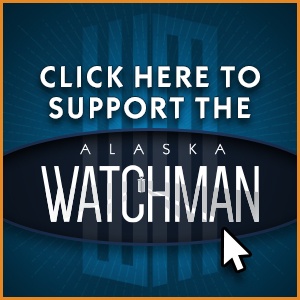
The Mat-Su School Board is meeting on Jan. 18 to consider whether area public schools should administer a 98-question state survey that asks high school teens about their sexual proclivities, various types of contraception they employ and whether they have been tested for sexual diseases.
Additionally, the biennial Youth Risk Behavior Survey gathers information about teen drug use, home life and parental relationships, and general health and wellbeing. Questions are developed by the CDC and the State of Alaska. Schools then administered the survey during academic hours in February and March.
Students need parental permission to take the survey, and the nature of the questions have stirred considerable controversy in recent years.
Last year’s survey was cancelled due to Covid complications and the fact that some communities took issue with the state’s failed attempt at adding a new question asking teens about their sexual orientation and preferred gender identities.
The Mat-Su School District – Alaska’s second largest – told the state it would not participate in the 2022 survey.
Concerned about continued community pushback, the state has since scrapped its sexual orientation questions for this year, with the hope of reintroducing them subsequent years.
While LGBTQ questions won’t be in the 2023 survey, many other questions will pry into teens’ sexual activities, or lack thereof.
Questions on the 2023 survey include the following:
— “Have you ever been forced to have sexual intercourse when you did not want to.”
— “During the past 12 months, how many times did anyone force you to do sexual things that you did not want to do? (Count such things as kissing, touching, or being physically forced to have sexual intercourse.)”
— “During the past 12 months, how many times did someone you were dating or going out with force you to do sexual things that you did not want to do?”
— “Have you ever had sexual intercourse?”
— “How old were you when you had sexual intercourse for the first time?”
— “During the past 3 months, with how many people did you have sexual intercourse?”
— “Did you drink alcohol or use drugs before you had sexual intercourse the last time?”
— “The last time you had sexual intercourse, did you or your partner use a condom?”
— “The last time you had sexual intercourse, what one method did you or your partner use to prevent pregnancy?” Possible answers include, birth control pills, condoms, IUD or implants, shots, patch, birth control ring or withdrawl.
“Have you ever been tested for HIV, the virus that causes AIDS?”
“During the past 12 months, have you been tested for a sexually transmitted disease (STD) other than HIV, such as chlamydia or gonorrhea?”
During a September 2022, YRBS meeting Alaska’s Adolescent Health Project Coordinator, Jenny Baker, said the state has also included a question asking teens whether they have talked to their parents about HIV/AIDS.
This question, she noted, will reveal to state officials whether parents are actively talking about sexual matters with their children. This information, she said, is key to determining parental engagement, and will ultimately help the state determine where it needs to step in with regard to providing sex education in general.
Wendy Williams, a nurse consultant for the state, agreed with Baker that it was important to determine whether parents were adequately discussing sexual issues with kids.
Several other questions are also specifically aimed at evaluating parents’ relationships with their children. These include the following:
— “During the past 30 days, how often did you go hungry because there was not enough food in your home?”
— “During the past 12 months, did you ever sleep away from your parents’ or guardians’ home because you were kicked out, ran away, were abandoned, or felt unsafe in your home?”
— “How often does one of your parents talk with you about what you are doing in school?”
ALASKA WATCHMAN DIRECT TO YOUR INBOX
Nationally, powerful left-leaning activist organizations regularly use YRBS data to push for LGBTQ affirming schools, gender-fluid bathrooms, transgender sports policies and curriculum that supports the wider LGBTQ agenda. Likewise, Planned Parenthood utilizes YRBS data to claim that schools should implement explicit sex education and offer birth control and abortion referrals for youth.Bottom of Form
Data from the survey is used by the state and other agencies to develop health education, sex-ed courses, behavioral health programs and other outreaches.
The survey does not ask for a student’s name, and their information is kept anonymous. Participation is voluntary and requires a parent to actively give permission in writing. Students 18 or older, however, do not need parental permission to take the survey.
According to the state’s YRBS website, 2-3% of students typically refuse to participate in the survey, and in 2015, 19% of parents did not give permission for their child to take it.
The survey is part of a national effort run by the U.S. Centers for Disease Control and Prevention (CDC). The Alaska Departments of Health and Social Services and Education and Early Development facilitate the survey.
TAKING ACTION
— Click here to contact the Mat-Su School Board.
— Click here to read the 2023 YRBS survey
— Click here to read the agenda for the Jan. 18 school board meeting.
— Click here for information on how to participate in the Jan. 18 Mat-Su School Board meeting, which begins at 6 p.m.









26 Comments
You have to be kidding me …. These are questions for children in our public schools, and they can’t even teach “true” history, civics, and simple math ? Parental consent is one thing, but the fact that the survey even exists should be a major alarm, even if you don’t have children in school… It’s very telling of their agendas.
Wait so you are against making sure minors aren’t being sexually assaulted? What kind of monsters are y’all?
Look, Transwitch, we just want you to go back in the closet if you insist on being a degenerate, we want you to stay far away from kids, and we want kids to be able to cost-effectively learn the three Rs in a safe environment without having to put up with you sick monsters trying to warp healthy society with your diseased thinking and predatory intentions. Does that seem unreasonable to you?
Exzactly! Well said
the survey is anonymous and doesn’t ask for the student’s name. How would it make a difference for the one being assaulted? The school wouldn’t know who is being harmed. There are better ways to handle it. It sounds like this survey just goes to the CDC, a federal agency that has no business knowing these things.
There is no such thing as complete anonymity. Schools were not created for the purpose of providing the state with a pool for research. They have a mission; educate our children in common knowledge for use in the marketplace. If we decide to gauge their aptitude against other programs to find weaknesses and strengths, then administer a standard aptitude test to accomplish the effectiveness of the curriculum. Schools are not an experimental, psycho-social clearing house for the CDC. Time to defund the Board of Education since there is very little in the way of education being conducted.
Get ahold of yourself, goofball. You’re another queer that doesn’t get it. You can’t promote a crime against nature and at the same time imply that you’re an altruistic arbiter of sexual health and normalcy. These concepts are mutually exclusive. Alaska schools do a remarkably poor job of the singular task they’ve been assigned and to require such an ineffective group to spend academic time focusing on non-school oriented topics would be a travesty. To assume further that a sexual deviant should have a voice in the decision is an indication of further deficits best left unexplored.
Want a good idea of what to expect when you put a sexual deviant in a position of having access and influence over children? Here’s a prime example…
https://www.msn.com/en-us/news/crime/gay-couple-charged-with-molesting-their-adopted-sons-also-pimped-them-out-to-pedophile-ring-report-claims/ar-AA16zyzh?cvid=04995135acbf43a4a1ce731fc9a4f96f
Pushing leftist sexualization and taking this responsibility from parents hasn’t actually lowered the incidences of sexual assault. And let’s not forget that the institution that is by a huge margin the most likely to have its employees molest your children is public schools.
This segment, copied and pasted below – statement tells us exactly the mindset we are dealing with.
“ During a September 2022, YRBS meeting Alaska’s Adolescent Health Project Coordinator, Jenny Baker, said the state has also included a question asking teens whether they have talked to their parents about HIV/AIDS.
This question, she noted, will reveal to state officials whether parents are actively talking about sexual matters with their children. This information, she said, is key to determining parental engagement, and will ultimately help the state determine where it needs to step in with regard to providing sex education in general.
Wendy Williams, a nurse consultant for the state, agreed with Baker that it was important to determine whether parents were adequately discussing sexual issues with kids.”
These people truly believe our children are theirs. None of this is their business. Parents can manage talking to their kids at their level and about what is essential. Much of these invasive questions have nothing to do with educating or safe sex. It is meddling, and spying on families. Egregious and unacceptable.
I’ve said it before and I guess ill day it again, It’s none of your business! Deal with it and leave the kids alone. If I had kids in school I’d have a real say and you’d need Anchorages new speech panel to calm me down. This is total garbage. You have no reason to be butting into kids live with even thinking about asking these questions.
Check who has been appointed to the of Department of Health and Social Services ( HSS) in the US. Biden appointed a man with gender dysphoria who thinks he is a woman. He is corrupting as many as possible.
wow. government stay the heck out of homes, parenting and focus on educating the basics which you are failing miserably at. this is about as insulting as it gets.
Again, where is do-nothing Dunleavy? Missing in action yet again.
I was wondering also why Dunleavy is not commenting on this and seeing what can be done to stop this survey.
Dunleavy is missing in action due to his Executive order and allowing DHHS to be split without vetting and investigation of allegations and crimes against the children in the Foster Care Program and the mental Psychiatry hospitals for children and their treatments that are illegal. This leads to why did Adam Crum along with Dunleavy allow it and cover up the crimes? By the way, why do we have 17 people incarcerated and murdered in prison without investigation and reporting to the public? Time to Recall Dunleavy the Principal Criminal in these matters. Time for the DOJ in Alaska to investigate and do something about it.
I wonder how many KIDS will answer honestly? You know a lot will make up answers just to have fun and throw a great big thumb at adults (gee, teenagers rebelling, naw…)
Friend of Humanity
Your question of dunleavy is so spot on and innocent.
Dunleavy is not what you and so many other people think he is! This could be proven convincingly, but I will not waste my or your time doing so. Instead try your best to talk to dunleavy himself in a public forum and confront him on the subject! Then record his response, and review it to determine what he actually said and it will be clear that he is unwilling to influence or help the state he governs!
Good luck finding him accessible to the public!!!
Dave, perhaps I have just learned to word things innocently? I have seen Dunleavy signalling his loyalty to freemasons and how uncomfortable he seemed taking his oath to office when he was sworn in this last time. Something is not right and I am waiting to see the day that he shows his true colors to all of Alaska.
I don’t know if the editor does not approve of my other comment. I just want to say that I have a pretty strong gut feeling of who Dunleavy is – freemason and all.
He’s a Catholic. He’s not allowed to be a Freemason.
Matthew, he made a freemason gesture at the beginning of his swearing in. Watch the video – it is plain as day. Being Catholic doesn’t mean anything in my book these days.
Great discussion between Dr. Alan Keyes and Dave Racer about today’s happenings and thoughts.
“1/18/2023 Let’s Talk America: Dr. Alan Keyes ft. Dave Racer”
https://www.brighteon.com/1662a98d-4437-4049-958a-8dcb46848040
Here’s a video from La Quinta Columna’s Dr. José Luis Sevillano talking about our world today and if humanity does survive this evil take down.
https://www.brighteon.com/92d9ff53-ef6d-4d16-8983-b2c71aad1e1e
Another example of ignoring our schools and school board meetings, resulting in the Jenny Baker crowd inserting their morals into our lives. There is no rest for God fearing people concerned about the hearts and minds of young people. Attend a Fairbanks North Star Borough School District meeting to feel and see the war of values in play.
At this point our public schools are child abuse!
Keep your children out of them